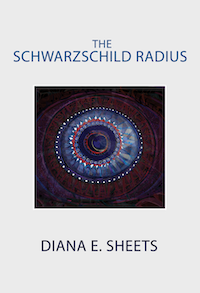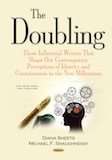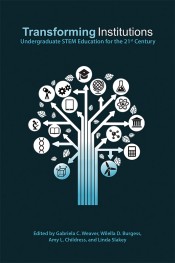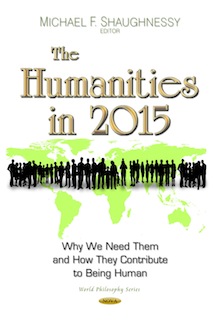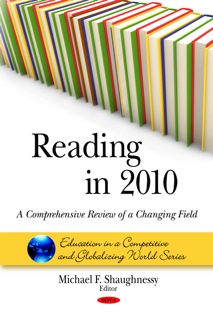The Crisis in the Humanities: Why Today's Educational and Cultural Experts Can't and Won't Resolve the Failings of the Liberal Arts
Copyright © 2013 by Diana E. Sheets
The press has been all a “twitter” about a new report “The Heart of the Matter,” published by the American Academy of Arts and Sciences, that acknowledges the decline in the number of undergraduates majoring in the humanities and seeks to redress this problem. But if one reads this assessment published by the Commission on the Humanities and Social Sciences, one realizes that no one in the Academy or academe or the society at large is prepared to make the difficult choices necessary to resolve the problem.
The Commission views the endeavors of the humanities and social sciences as central to our lives: they are “the heart of the matter, the keeper of the republic—a source of national memory and civic vigor, cultural understanding and communication, individual fulfillment and the ideals we hold in common.” But reality today suggests something entirely different. Since the late 1960s and overwhelmingly by the late 1980s America’s educational institutions have abandoned universal standards of cultural excellence. Consequently, all studies dedicated to reviving the humanities and addressing the current blight of our educational institutions are destined to fail unless we confront and overcome this discomforting reality.
To understand why students have migrated from the humanistic disciplines toward business, professional, and technological pursuits, it is necessary to look at what is actually taught in liberal arts today. Consider, for example, Abraham Lincoln. He is far more likely to be considered a racist or closet homosexual nowadays than an extraordinary leader who as president of the United States had the courage to persevere in the quest to forge a more perfect union. Since the late 1980s our leaders have been relegated to the debased category of DWEM—dead white European males—hegemonic villains who oppressed the socially disadvantaged both here and around the world. The embracing of this worldview has debased our humanities and undermined our standards of excellence in our educational institutions. For how can you examine the cultural foundations of our civilization while constantly devaluing it?
American students have tacitly acknowledged the irrelevancy of the humanities today by voting with their feet. Not surprisingly, a recent report issued by Harvard provided figures that students who received four-year degrees in the humanities had fallen from 14 percent in 1966 to just 7 percent in 2010.
Identity politics, class struggle, and gender warfare—even when grievances have legitimate foundations—have resulted in a death spiral to the humanities and a loss of opportunities for its students. How do I know? Since 1999 I have held a Research Scholar appointment at the University of Illinois in the English and History Departments. This past year I had the privilege of teaching a new course, based on years of my scholarly writing, “Controversies of Contemporary Western Culture, 1960s-2012” in the Campus Honors Program. As a Fellow in iFoundry, the undergraduate enrichment course in the College of Engineering, I also helped develop a “Reading Matters” program to explore how scientific excellence and innovation are nurtured.
But I was forced to acknowledge the unspeakable: the humanists are lagging behind the engineers. The disciplines of English and History, for instance, are saturated in the politics of social justice. My junior and senior humanities majors had not read Melville’s Moby-Dick or Hawthorne’s The Scarlet Letter. Their cultural references were almost exclusively film and popular culture. They rarely, if ever, read difficult or demanding literature. Not surprisingly, much of their writing was poor. Most of these students were ill-equipped to make sustained and nuanced arguments since they lacked the conceptual techniques to back up their opinions with authoritative evidence.
Why? They had not been informed that some scholarly sources are better than others, that critical thinking means becoming knowledgeable and open minded about ideas that might be antithetical to one’s beliefs. By contrast in the engineering cultural enrichment program iFoundry, students were more receptive to intellectual challenges and contradictory ideas that challenged their worldviews. They knew through experience that learning is difficult, demanding, and necessitates years of hard work to understand and achieve technological mastery. My engineering students instinctively understood what their humanist counterparts failed to grasp: the politics of remedial social justice erodes a community committed to excellence.
This crisis in the humanities will be unremitting not because there are no solutions but because the luster of the humanities will not be restored by means of the “Politics of Virtue.” Our students must understand the foundations of their Western cultural heritage; they must be serious readers; they must engage in substantive research that necessitates the difficult process of critical thinking even if it challenges their worldview. This necessarily means returning to the foundational building blocks of Western civilization based upon rigorous standards of academic excellence. The humanistic disciplines must jettison the pseudo-Marxist catechism of social justice and postmodern nihilism exemplified by John Rawls in order that our students resume the pursuit of truth, beauty, and goodness, the firmament of the Western canon.
But, of course, this is precisely what the Commission on the Humanities and Social Sciences would never acknowledge. For that would require a fundamental change in worldview. Without a seismic change in values that venerates historical cultures of excellence in conjunction with a celebration of scientific, professional, and technical achievement, there can be no restoration of the humanities. The migration of students into business, professional, engineering, and technological areas of expertise will continue. What we refer to as “culture” will be nothing but mangled Marxism, pop culture, and the cult of celebrity with the prerequisite gangsta overtones espoused by the radical chic.


